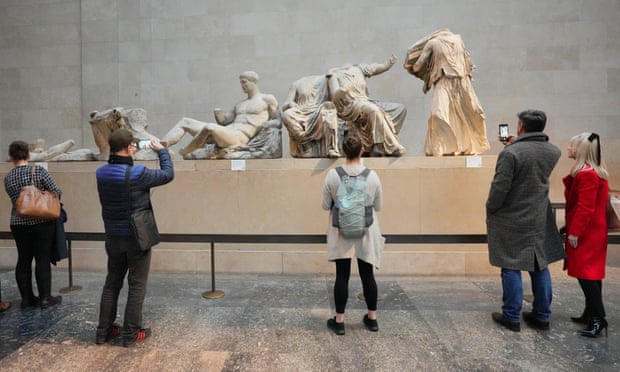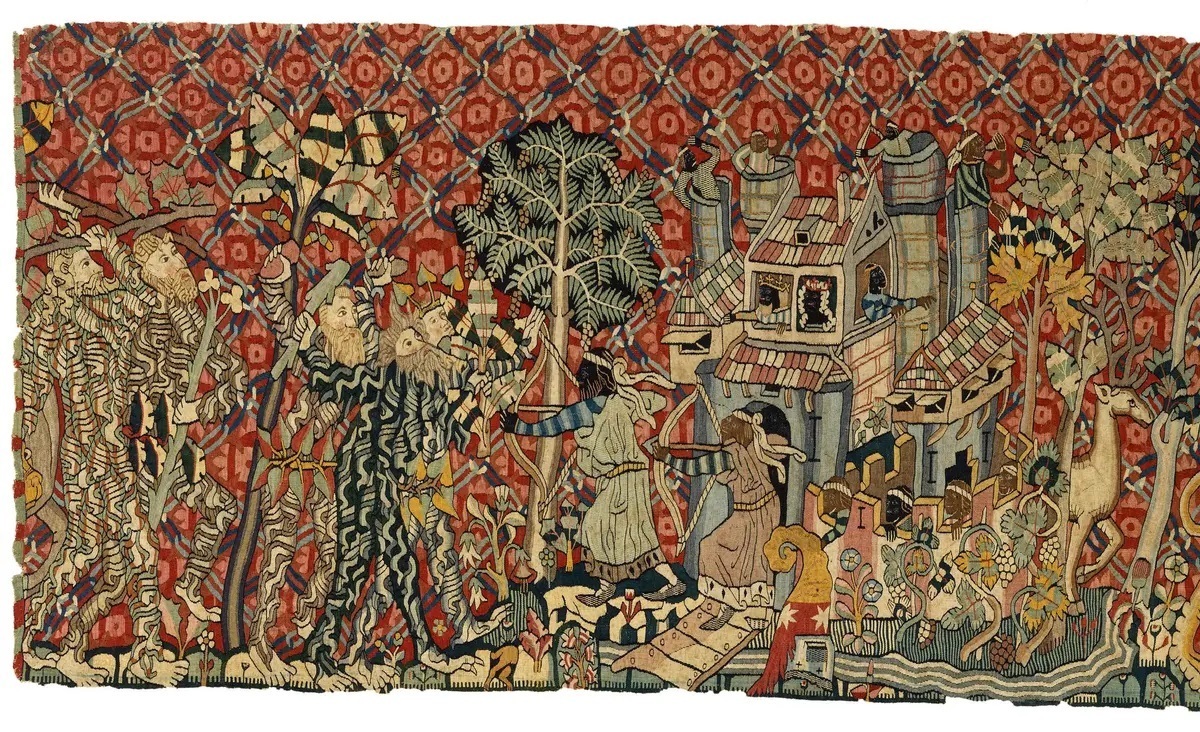The Guardian
These relics from the fountainhead of European culture don’t belong in a cold, grey Bloomsbury chamber.
The Parthenon marbles row is beyond silly. Rishi Sunak screeches “Mine, mine” like a child in a playground. (...) The nation yawns – polls show over half are happy to see the marbles returned and just above 20% want them to stay. Any civilised Briton knows they should be displayed where they belong – in their former home of Athens. (...)
(Text continues underneath the photo.)

Visitors to the British Museum in London view sculptures that are part of the Parthenon marbles collection, 28 November 2023. Photograph: Kirsty Wigglesworth/AP.
[A]s any visitor to Greece knows, what to Britain is a boring scholastic quarrel is to Greeks a burning sense of grievance that will not go away. This is an asymmetrical row.(...)
Of course Britain has legal title to the statues, but laws can be changed. Of course Lord Elgin probably saved them from destruction, though they were later damaged in cleaning. (...)
The marbles issue is simply about the integrity of one of Europe’s greatest artistic compositions. These statues came from the fountainhead of European culture at its most formative moment, in the 5th century BC. That fountainhead was on the Acropolis in Athens, gazing out over the sunny Aegean with marble from the adjacent mountain, not imprisoned in a cold, grey chamber in Bloomsbury. (...)
Science could satisfyingly replicate the Parthenon marbles in both Athens and London. But to the Greeks – far more than any Britons – this is indeed about authenticity. The Parthenon is their ancestral temple and the marbles their crown jewels. They badly want them back. And surely a cultured country such as Britain should have the dignity to oblige. It has the power to restore integrity to this stupendous composition in the land of its creation. (...)
But a post-imperial arrogance has crept into the marbles debate. Britain’s government is telling the rest of the world: you may have got your independence back, but you are not getting your stuff. (...)
The great collections of antiquity are more or less confined to a few grand museums in Europe and America, products of national aggrandisement in the 19th century. These institutions are fanatically reactionary. (...)
There is nothing sacred about a museum. It is an unnatural place to leave thousands of objects frozen in time and place, vulnerable to theft and decay. (...)
The truth is that most museums have too much stuff, far too much. They should distribute it to the rest of the world. Returning the Parthenon marbles might indeed be a precedent, and an excellent one.
Hele artikel
Tags: #greece #great_britain #united_kingdom #british_museum #parthenon #elgin_marbles #parthenon_marbles #looting #art #museum
















